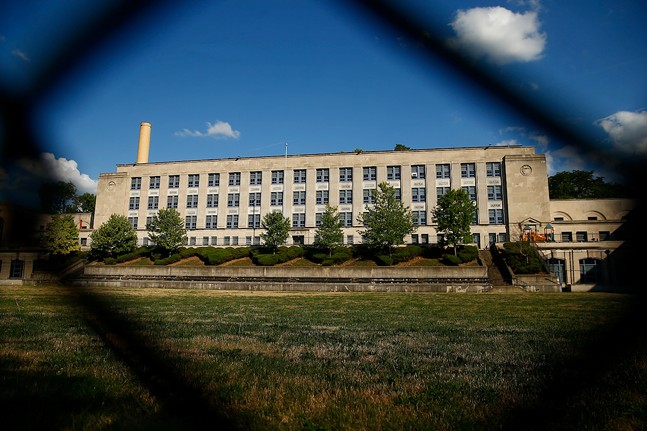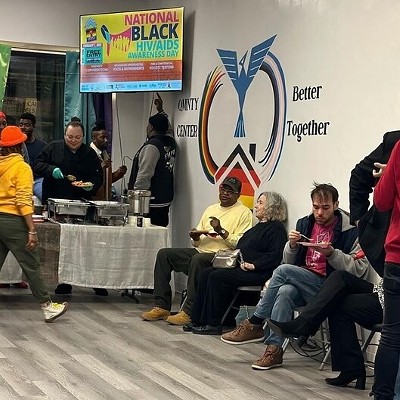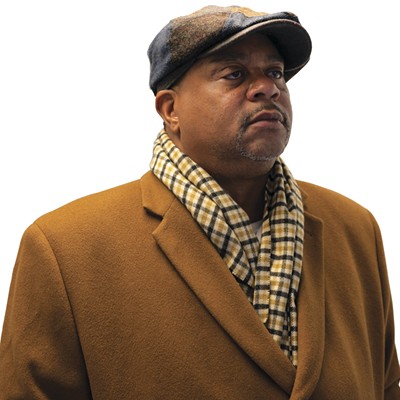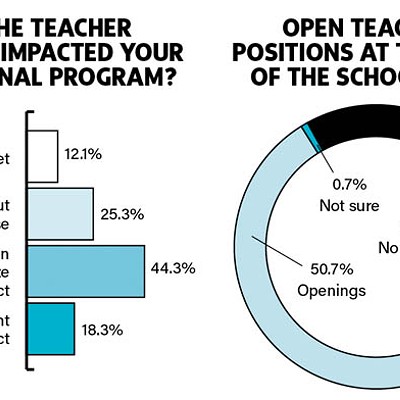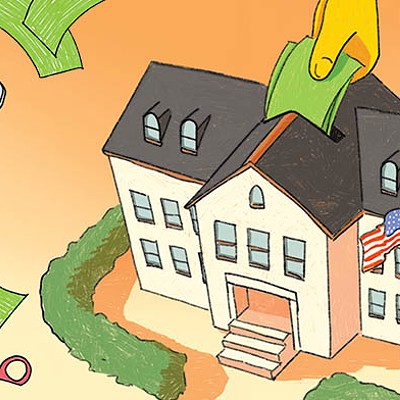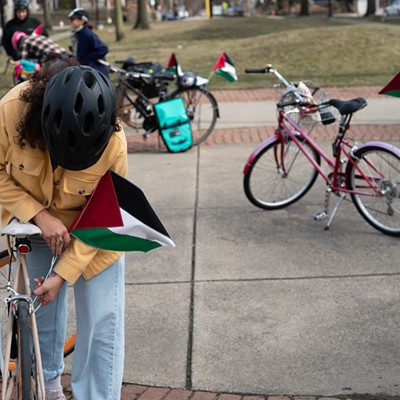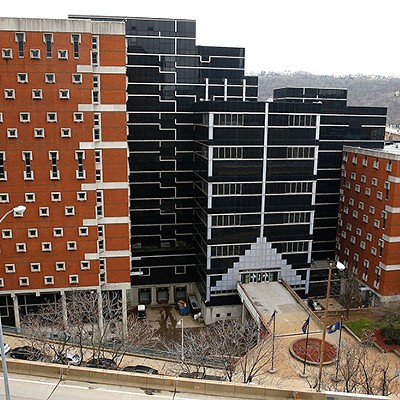Advocates are calling on Pittsburgh Public Schools to ban the practice of school police officers issuing criminal citations to students, which they say disproportionately impacts Black students, especially girls and students with disabilities.
On June 28, Pittsburgh Public Schools’ Board of Directors will vote on the approval of a student code of conduct for the coming school year. It’s a code of conduct that advocates say is gravely flawed, because it codifies school police officers’ power to issue summary citations to students for incidents occurring at school.
During a June 26 rally outside the Pittsburgh Public Schools administration building and in a subsequent public hearing, a coalition of several community groups including the ACLU-PA, 412Justice, Gwen’s Girls, 1Hood, and West End Power urged district officials to issue a moratorium on giving students summary citations and criticized what they described as an overuse of suspensions and other punitive disciplinary measures.
“Parents, students, and advocates have argued for the last ten years that harmful policies continue to criminalize, hurt, and stop student success,” Angel Gober, director of 412Justice, testified at the public hearing.
Advocates say there are significant disparities in the number of citations issued to Black students relative to their share of enrollment in PPS. According to data provided by 412Justice, in the 2021-22 school year, Black students made up just over half of PPS students but received 88% of the citations issued. The rate of summary citations was 12 times higher for Black students than for white students, a disparity that has tripled since 2017-18. This rate was highest for Black girls, the data show, who are cited at 24 times the frequency of white girls.
Although summary offenses are the most minor criminal charges, advocates say they can have long-lasting impacts. Summary offense citations require individuals to appear in front of a magistrate judge and may result in fines, referral to the juvenile justice system, and/or a lasting criminal record.
“By doing this, we are perpetuating the same violence towards [Black] kids that our society does,” said Jamila Washington of 412Justice, one of several public commenters who described issuing summary citations to students as an on-ramp to the school-to-prison pipeline.
According to a letter the coalition sent to district officials, there are no school-based infractions for which issuing a summary citation is required by state law, and many school districts choose not to allow these citations to be issued to students in school.
Additionally, advocates argue that PPS overuses suspensions in response to student misbehavior, also in a way that targets Black students.
Xochitl Vazquez, an organizer with 412Justice, testified at the public hearing regarding the negative effects of suspending a student from school.
“The use of in-school police issuing citations and increasing suspensions has been shown to cut into children’s learning,” she said, noting that according to school district data, PPS’s suspension rate for the most recent school year was 13.3% — up 1.2% from last year.
“Clearly the policies and practices that are in place are not working,” Vazquez said. “More and more students are getting in trouble and missing crucial learning time… when students are forced to miss school, they begin to feel like they’re not welcome. They begin to feel like they’re not safe. The rate of suspensions and use of citations creates an environment in schools that students do not feel comfortable in."
Instead, organizers are urging school district officials to divest from policing in schools and invest in culturally responsive approaches to restorative and transformative justice, social-emotional learning, trauma-informed curricula, implicit bias training, and disability awareness for all PPS staff, and hiring more counselors and support staff.
According to the letter, next year’s district budget includes more money for in-school social workers to reach a ratio of one social worker for every 350 students. Organizers recommend a ratio of 1:100 in high need schools and 1:250 elsewhere.
The groups also urge greater transparency from the school district regarding student interactions with school police officers and the creation of a process to take “actionable intervention steps” to address misbehavior prior to issuing a citation.
A spokesperson for Pittsburgh Public Schools did not respond to a request for comment.

